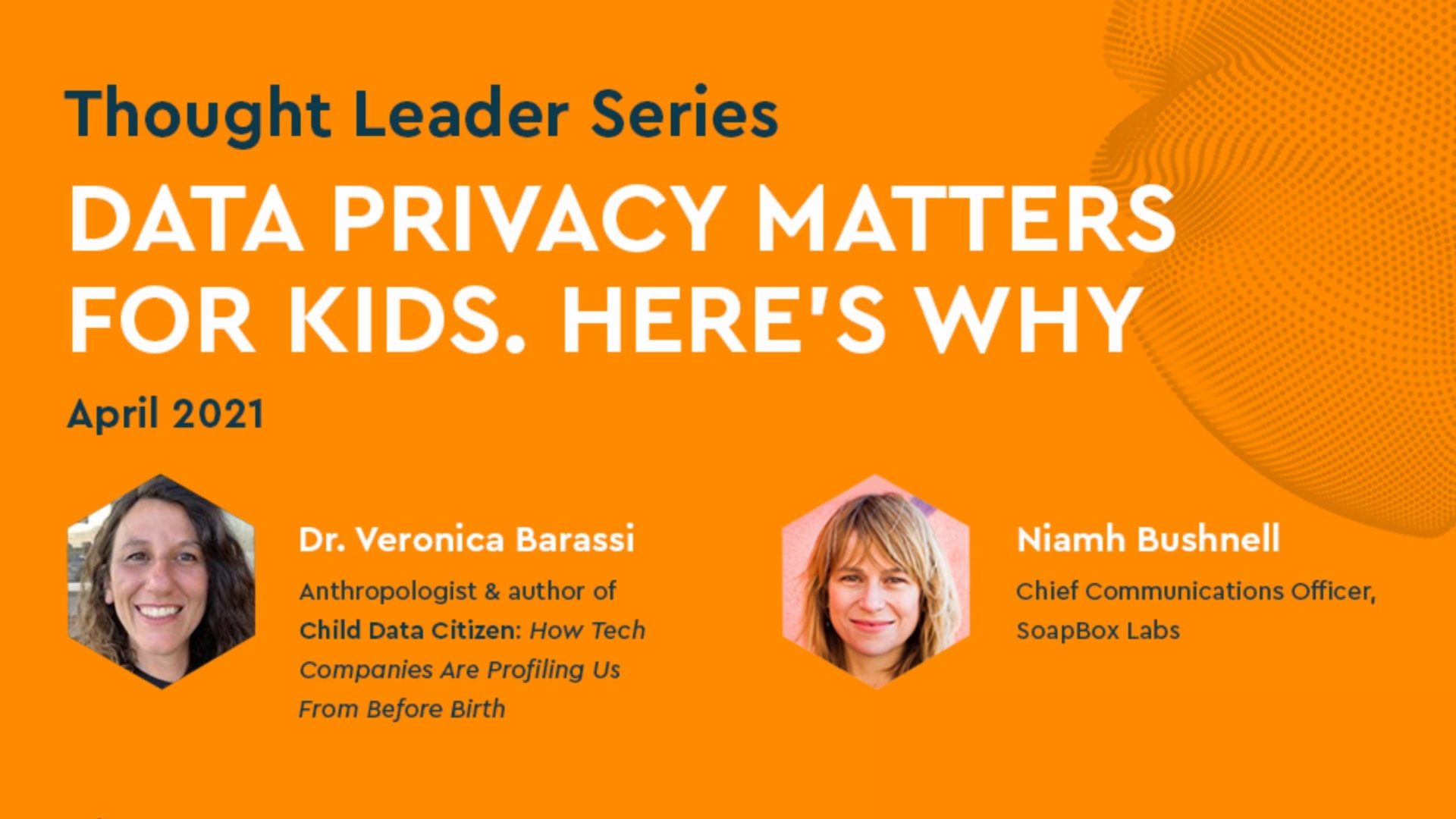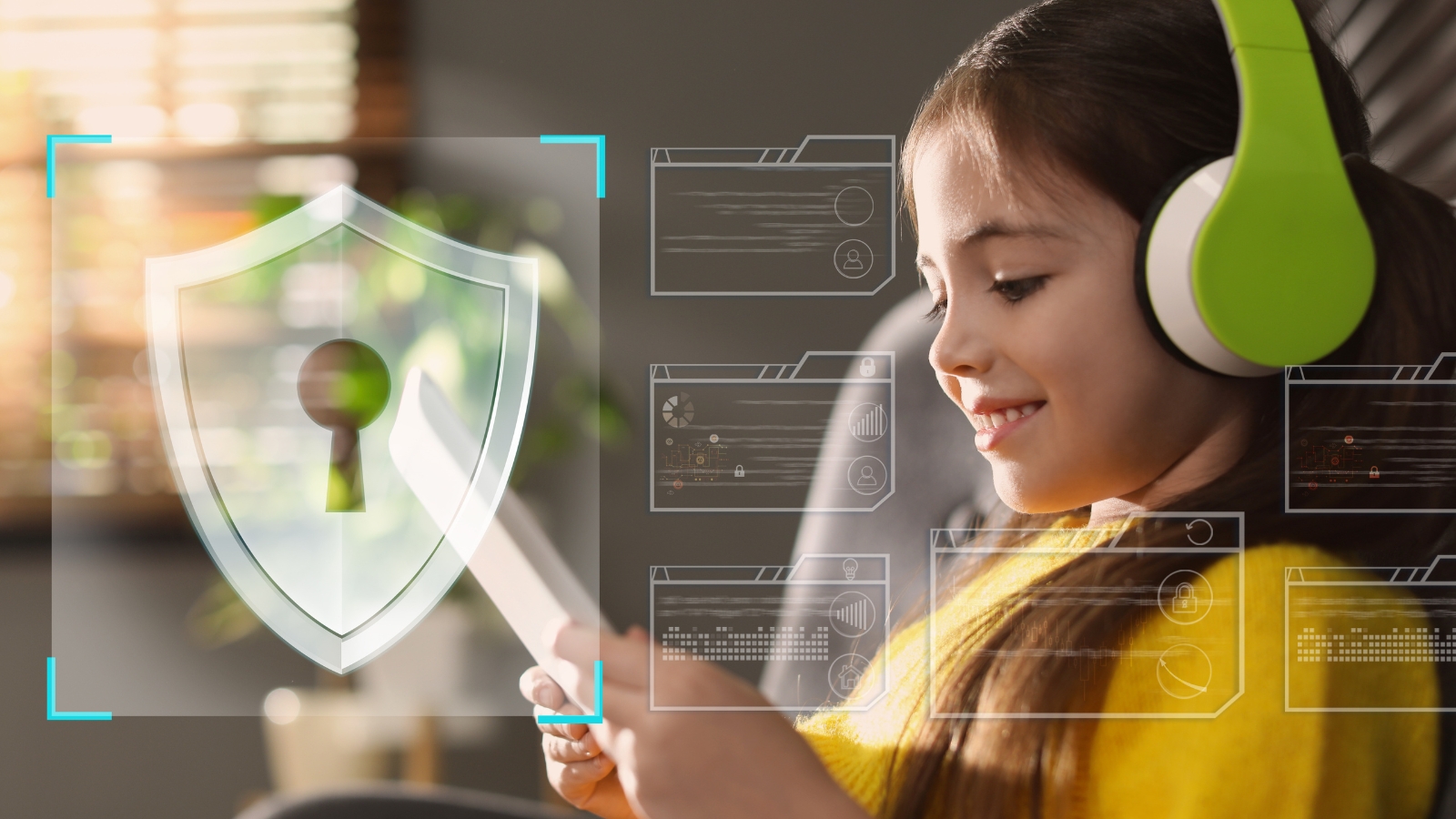Data Privacy Matters for Kids. Here’s Why
April 15, 2021

Children’s data privacy has become a hot topic over the past few years. News this week that Disney, Viacom, and other global brands have agreed to legal settlements after being accused of “violating the privacy of millions of youngsters” reflects growing public concern about how technology tracks adults and children in the home and beyond.
Earlier this week, Chief Communications Officer Niamh Bushnell spoke with child data privacy expert and advocate Dr. Veronica Barassi.
Dr. Barassi is an anthropologist and professor at the University of St. Gallen in Switzerland. Her most recent book Child Data Citizen: How Tech Companies Are Profiling Us from before Birth was published in December 2020.
SoapBox Labs has collaborated with Dr. Barassi on a number of projects in recent years, including our 2019 submission to the UN: “Voice Prints and Children’s Rights.”
In this interview, Dr. Barassi talks about how the pandemic has amplified privacy concerns and how children deserve to be treated as citizens with privacy rights from the moment they are born. She also discusses why a privacy-by-design approach needs to be adopted by all companies who seek to position themselves as responsible and ethical when it comes to children and their data.
Below are some excerpts from this important discussion. Listen to the full 30-minute podcast here.
How has the pandemic impacted data privacy concerns?
“Recent years have seen the introduction of surveillance software in homeschooling and in the home office. But the pandemic has come as a bit of a shock to those of us who study data privacy and data mining because a lot of the technologies and data tracking practices that we were worried about before have been amplified in the last year.”
Why is it so important to protect children’s data privacy?
“The privacy debate has changed massively over the last year and the question is about children is key. At the heart of this debate lies a fundamental question about children’s right to freedom. Historically, there’s a tendency to not recognize the civic rights of children: we confine them to the margins and think of them as “future consumers” rather than as citizens in their own right.
“When we’re talking about children’s data privacy, we’re not only talking about their right not to be tracked. We’re talking about their right to grow up and not to be judged on the basis of the data collected on them since their childhood. What people don’t realize is that most of the data we produce through consumer platforms is repackaged and sold to third parties who profile us, and these profiles can be used to judge us, to determine if we’re the right candidate for a job, for example, or whether we have a history of mental illness. We need to realize that even the most mundane data related to family life is being collected and, over time, has an impact on our children”.
Why is voice data different to other types of data?
“Voice technologies are particularly interesting because they collect voice data. Voice data can be turned into biometric data and becomes personally identifiable. A voice print is like a fingerprint; it doesn’t go away and is uniquely attached to an individual.”
Why is privacy-by-design a non-negotiable when it comes to kids?
“Privacy-by-design means that when kids are using technology there isn’t a constant threat that their data is being harnessed or used for commercial or profiling purposes now or at some point in the future. For me, privacy-by-design is a bold, important, and responsible move that businesses need to take, especially if they want to protect children’s rights.”
What steps can companies take to protect kids’ fundamental right to privacy?
“There are two key things. First, they can delete any children’s data they have gathered through adult profiles on social media platforms or home-based technologies. The fact that this data is processed through adults’ profiles means that the data is not protected, and that puts children at risk. Secondly, companies creating products for children need to think about how they can restructure their businesses to incorporate a privacy-by-design approach. There are many different ways to create value without exposing children to the complexity and the injustice of our contemporary data environments.”
Listen to the full interview with Dr. Barassi on YouTube.
And check out these resources on kids’ data privacy:
- Child Data Citizen: How Tech Companies Are Profiling Us From Before Birth, by Dr. Veronica Barassi
- Voicebot guest post on voice data privacy, by COO Dr. Martyn Farrows
- UN submission: “Voice Prints and Children’s Rights”




